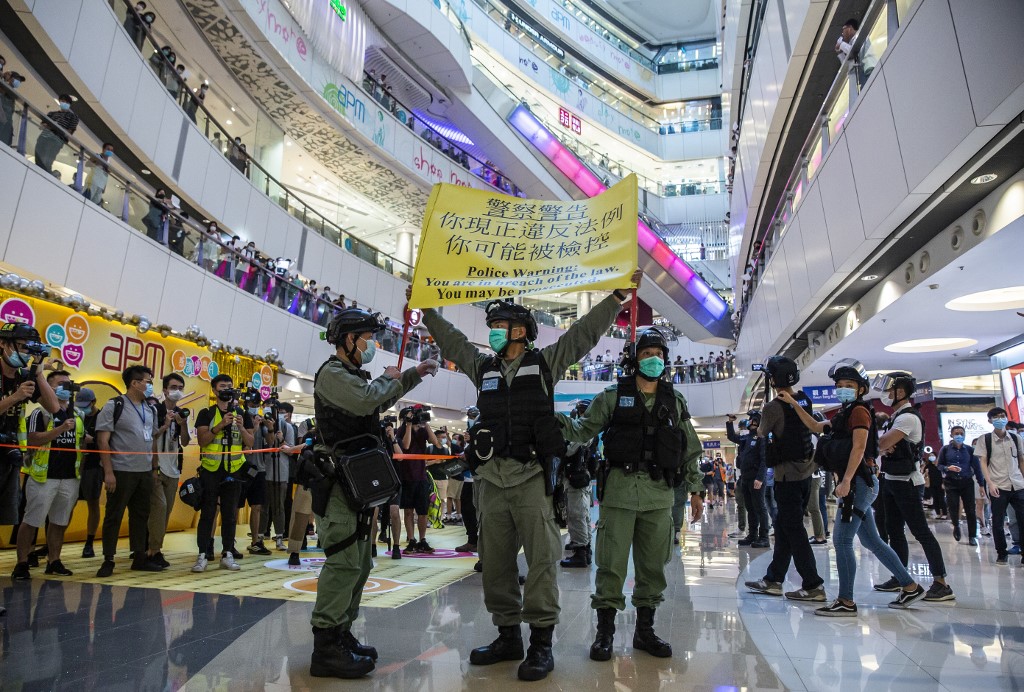Microsoft and Zoom on Tuesday joined other major internet firms that have stopped considering requests by Hong Kong’s government for information on users in the wake of China’s imposition of a sweeping new security law.
Microsoft and Zoom said they are pausing consideration of data requests by officials or police in Hong Kong, a precaution also taken by Facebook, Google and Twitter.
“As we would with any new legislation, we are reviewing the new law to understand its implications,” Microsoft said.
“In the past, we’ve typically received only a relatively small number of requests from Hong Kong authorities, but we are pausing our responses to these requests as we conduct our review.”
Zoom – a video-conferencing platform that has boom during the pandemic, said it is monitoring developments in Hong Kong and looking for guidance from the US government.
“Zoom supports the free and open exchange of thoughts and ideas,” the company said. “We have paused processing any data requests from, and related to, Hong Kong SAR.”
Facebook and WhatsApp
The pause at leading online social network Facebook and its popular messaging service WhatsApp will remain in place “pending further assessment” of the new national security law, and include “formal human rights due diligence and consultations with human rights experts,” according to the Silicon Valley giant.
“We believe freedom of expression is a fundamental human right and support the right of people to express themselves without fear for their safety or other repercussions,” the spokesman said.
Twitter and Google told AFP they too would not comply with information requests by Hong Kong authorities in the immediate future.
China last week imposed the security law on the city of around 7.5 million people, banning acts of subversion, secession, terrorism and collusion with foreign forces.
The law stipulates that trials can be held behind closed doors without juries, with offenders subject to a maximum of a life sentence.
The legislation, which has sent a wave of fear through the territory, has criminalised dissenting opinions such as calls for independence or autonomy.
TikTok pulls out of HK
The wildly popular video-sharing app TikTok will no longer work in Hong Kong, its makers said, after a new security law imposed by China gave authorities sweeping powers to police local users.
“In light of recent events, we’ve decided to stop operations of the TikTok app in Hong Kong,” the Chinese-owned firm said on Monday, becoming the first major social media platform to exit the city since the law was imposed last week.
The company expects to wind down operations in Hong Kong in a matter of days.
TikTok, owned by China’s ByteDance, had already been in the spotlight over how it collects and uses data, but has repeatedly denied sharing any user information with Chinese authorities.
Beijing said it imposed the new law on semi-autonomous Hong Kong to end the sometimes violent pro-democracy protests that have shaken the city since over a year ago.
It grants the police powers to control and remove online information if there are “reasonable grounds” to suspect the data breaches the national security law – reminiscent of internet controls in mainland China.
Internet firms and service providers can be ordered to remove information, and their equipment can be seized. Companies are also expected to provide identification records and decryption assistance.
Short videos
Despite concerns about how it collects and shares data, TikTok has become a global sensation with users – especially young people – sharing 15 to 60-second video clips on everything from hair dye tutorials to dance routines and gags about daily life.
While it does not publish such data, TikTok is estimated to have close to a billion users worldwide. But it has also found itself involved in major diplomatic disputes.
India banned TikTok over national security concerns following a deadly border clash between its soldiers and Chinese forces.
And US Secretary of State Mike Pompeo has said Washington is also looking at banning Chinese social media apps including TikTok over allegations that they are being used to spy on users.
Despite its ownership, TikTok is not available in mainland China, where ByteDance offers a variant called Douyin.
AFP























